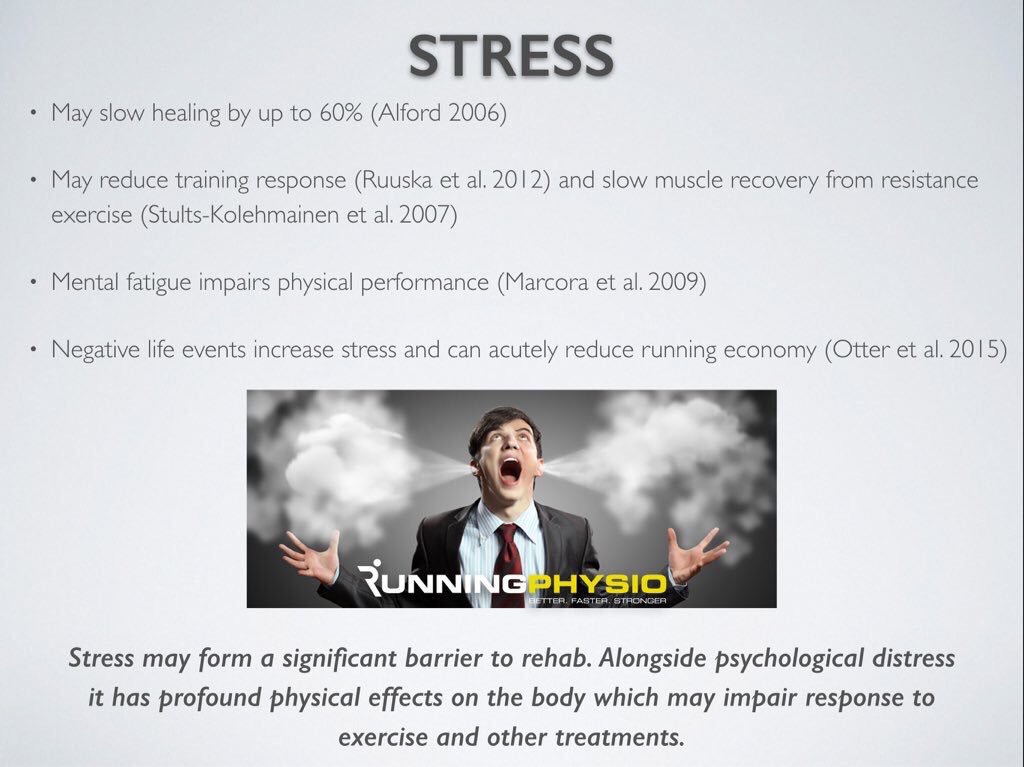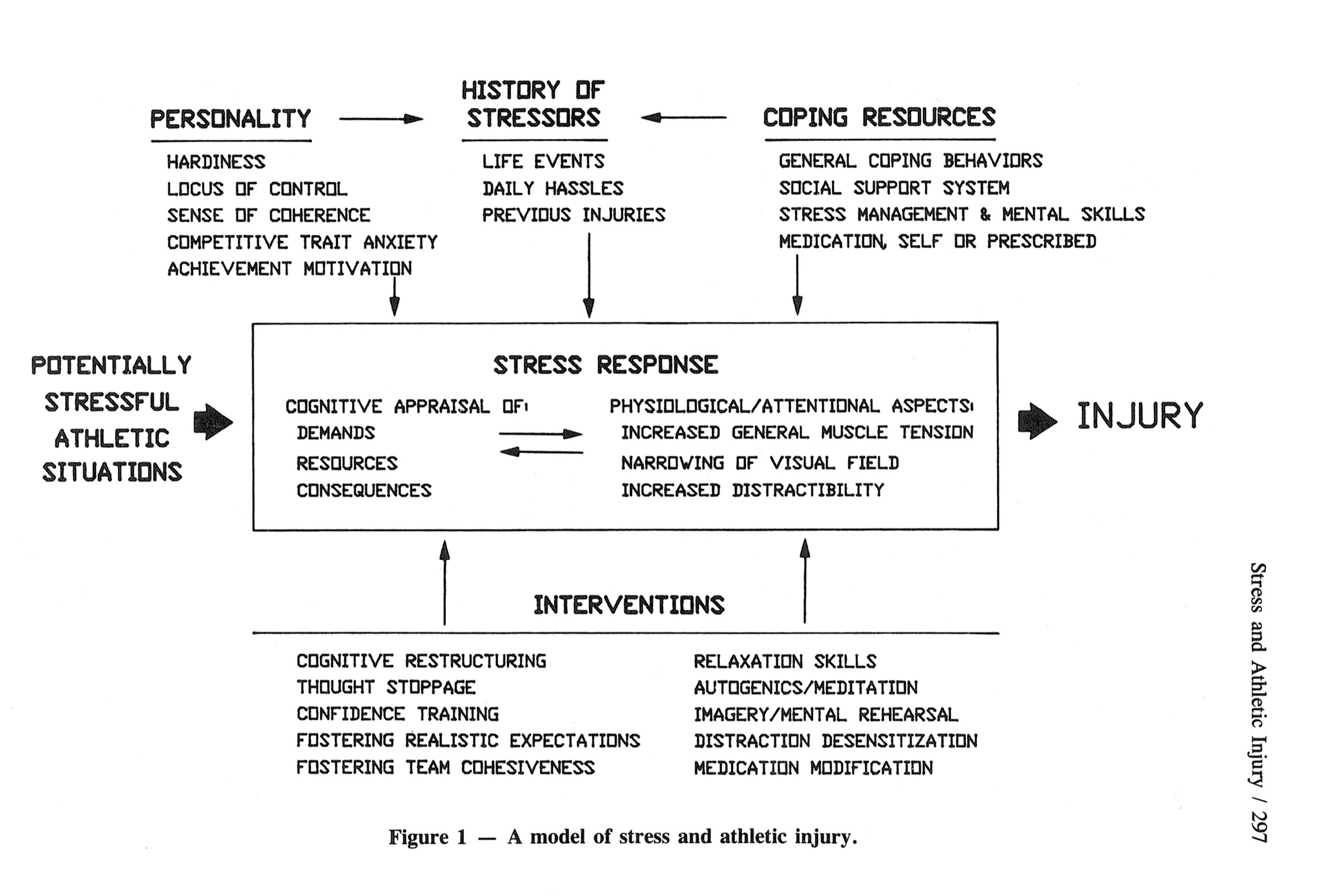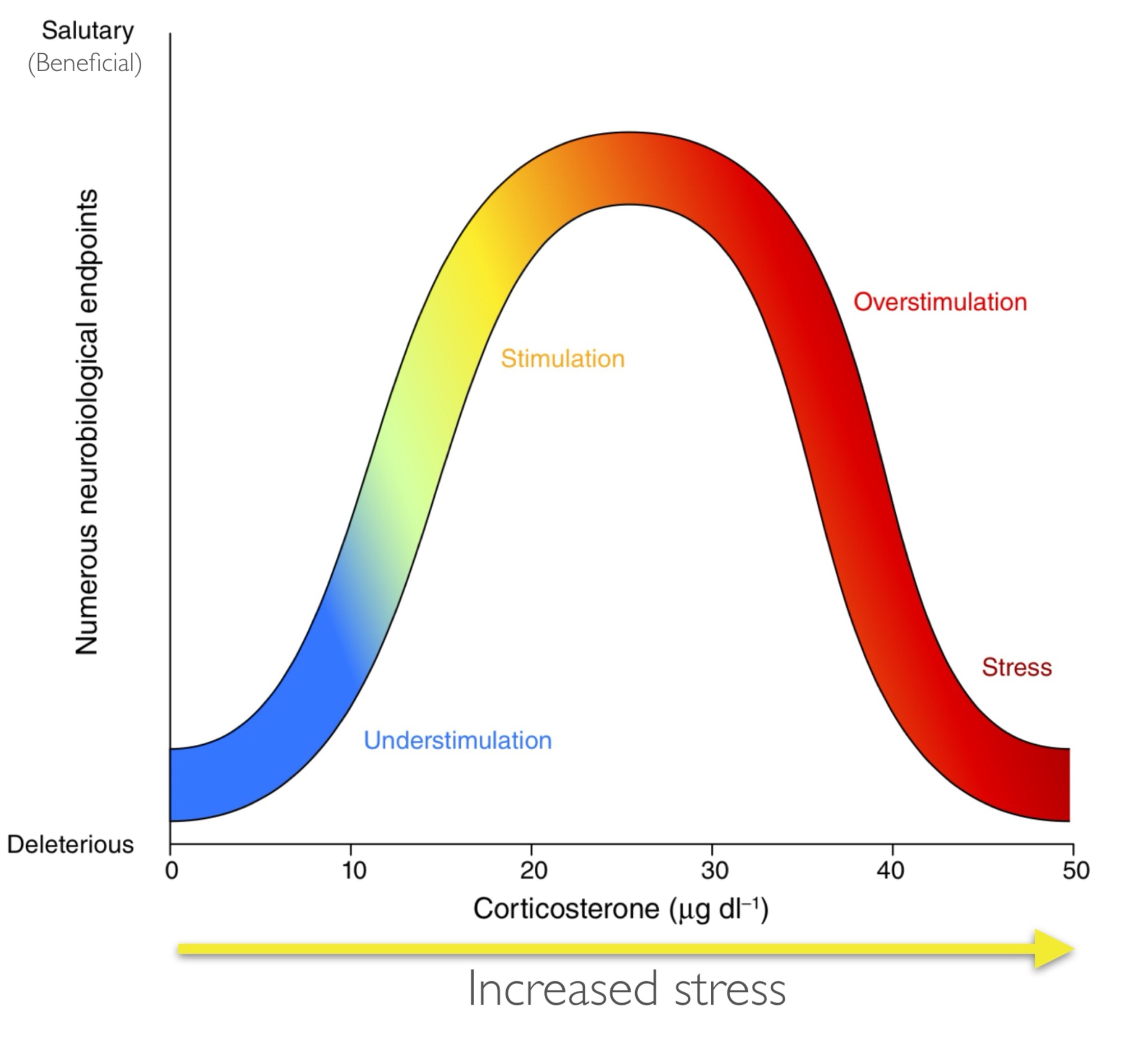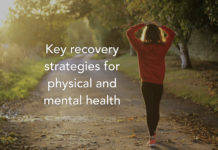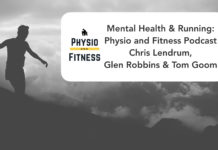Our articles are not designed to replace medical advice. If you have an injury we recommend seeing a qualified health professional. To book an appointment with Tom Goom (AKA ‘The Running Physio’) visit our clinic page. We offer both in-person assessments and online consultations.
For a long time we’ve suspected that psychological status and mood affects athletic performance. It makes sense that if you’re stressed or down you’re less likely to be at your best. New research is emerging that suggests this connection may be clearer than we realised and that stress can impair both running performance and recovery…
A recent study in the Netherlands found that a negative life event (e.g. Bereavement, being the victim of a crime) may increase stress, impair recovery and reduce running economy (a measure of how efficient you are as a runner). This latter aspect is a key finding as it suggests a connection between stress and running efficiency. In a nutshell it may well be that stress slows us down. Interestingly the athletes also reported more physical complaints in the week following the negative life event. Again this illustrates the connection between stress and physical changes.
As athletes we all hope our body will respond well to the training we do but some evidence suggesting stress may even reduce our ability to adapt to exercise. One small study found that those with higher levels of stress failed to show an improvement in fitness. It should be noted however that this study only took place over a 2 week period, a longer study is needed to assess the true impact of stress. Recent research has found higher levels of stress to be associated with a worse recovery from resistance training.
Historical research also suggests a connection between stress and the development of injuries. In the late 80’s Andersen and Williams proposed the stress and injury model;
Source: Andersen and Williams (1988)
Later research by Hanson et al. (1992) found that several aspects of this model are important in predicting injury severity and frequency in track and field athletes.
So if stress can influence performance, recovery and the development of injury what can we do about it? Firstly we need to realise that some stress is a good thing, it can stimulate us and promote positive actions. It’s a balance though and long-term, chronic stress can be especially harmful for our health. Sapolsky (2015) illustrates this nicely with his u-shaped curve;
Source: Sapolsky (2015)
If we look at this in terms of how it might influence our day to day lives in might look something like this;
Source: jamandgiraffes.com
Measuring stress
It can help to get a rough idea of your stress level to see roughly where you might be on the stress curve above. The Percieved Stress Scale is a simple questionnaire that allows you to score your stress out of 40 (where 0 – 13 is low, 14 – 26 moderate and 27 – 40 is severe). It can be a bit tricky to score yourself so here is an online version that provides a score for you.
Stress solutions
There’s no magic solution to stress but it can help to achieve a balance between the stressors in your life and the resources you have to cope with them. Have a think for a moment about these questions…
…What causes you stress? What are the consequences and how do you react to it?
…Can you spot patterns? Is it certain types of events (e.g. Something unpredictable happening, dealing with change) that cause you the most distress?
…Can you view these things differently? Could it be that your interpretation of an event is what leads to stress?
…Do you get enough rest and recuperation? Are you more stressed when you’re surviving on minimal sleep and using caffiene to battle the fatigue! (We’ve all been there!)
…What could you do to achieve a better balance?
If we can get to know ourselves, what causes us stress and how we react to it we can make our lives less stressful. If we committ time to things that help, like relaxation, exercise, time with friends, meditation etc we utilise our coping resources to help keep stress in check.
The NHS website has a nice page on stress including a helpful video (down in the bottom right) that’s work a look. I’ve found the Chimp Paradox by Professor Steve Peters to be a really helpful book for understanding your mind, setting realistic expectations and planning to minimalise stress.
If you have 10 minutes spare the always brilliant Dr Mike Evans has a nice video on stress management;
Closing thoughts…it might well be that stress does slow us down, not only mentally but physically too. If stress is an issue for you have a think about how you might manage it better and make sure you ask your GP or counsellor for help if you’re struggling.
